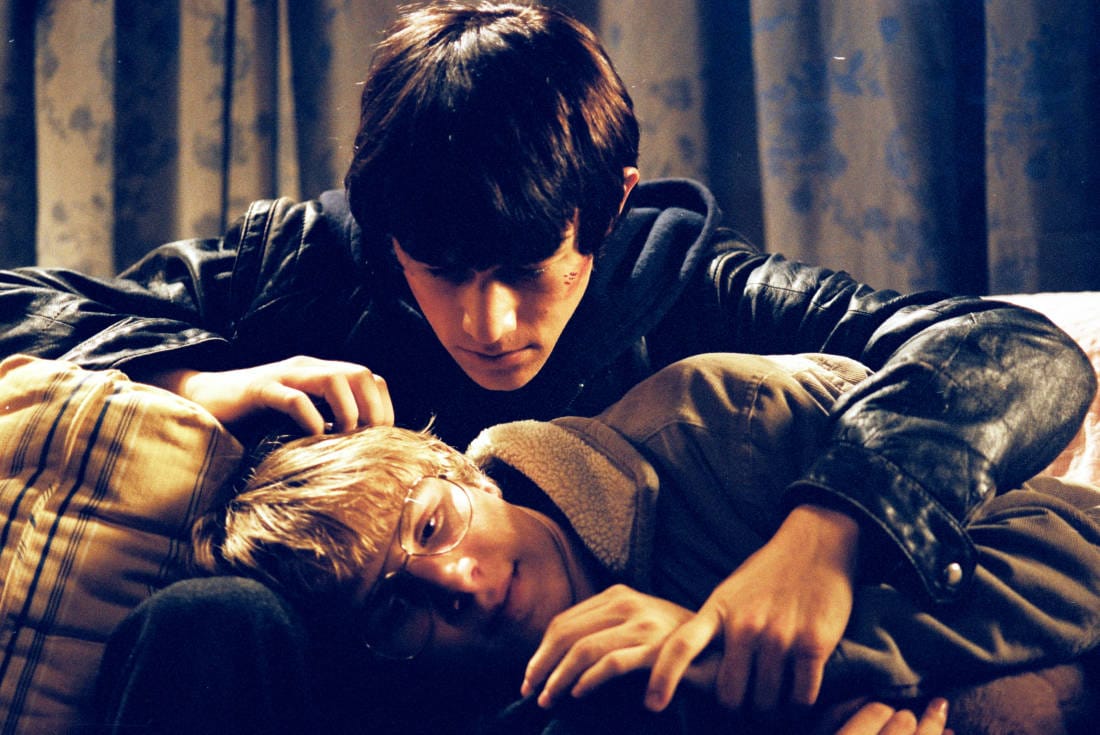Mysterious Skin: A Haunting Exploration of Trauma and Identity
“Mysterious Skin” is a 2004 psychological drama directed by Gregg Araki, adapted from the novel by Scott Heim. The film is an unflinching yet deeply empathetic exploration of childhood trauma, memory, and the lasting effects of abuse. Unlike typical coming-of-age stories, “Mysterious Skin” confronts its dark subject matter with honesty and sensitivity, creating a powerful meditation on how individuals cope with pain and try to make sense of their pasts.
Set in small-town Kansas, the story follows two boys whose lives are tragically intertwined by a shared experience they cannot fully understand. Neil McCormick, played by Joseph Gordon-Levitt in one of his earliest breakout performances, is a confident and charismatic young man who becomes sexually active at an early age. Unknown to him, his behavior is shaped by a traumatic event in childhood — a sexual relationship with his Little League coach. Meanwhile, Brian Lackey, portrayed by Brady Corbet, is a quiet and introverted teenager who suffers from blackouts and disturbing dreams. Convinced that he was abducted by aliens as a child, Brian begins to search for answers about the missing hours from his memory.

As their separate stories unfold, the audience gradually realizes that both boys are connected by the same incident of abuse. Where Neil has buried his trauma under reckless sexuality and emotional detachment, Brian has repressed it entirely, transforming his memories into something fantastical and otherworldly. Their eventual meeting serves as the emotional climax of the film — a moment of revelation, pain, and fragile understanding. Through it, Araki emphasizes that confronting truth, no matter how unbearable, is a crucial step toward healing.
Visually, “Mysterious Skin” is both beautiful and unsettling. Araki’s use of color — from the sun-drenched suburban landscapes to the neon hues of city nightlife — contrasts innocence with corruption, light with darkness. The cinematography by Steve Gainer captures the dreamlike quality of memory, while the haunting score by Harold Budd and Robin Guthrie of the Cocteau Twins enhances the film’s ethereal sadness. This delicate balance between realism and surrealism makes the film emotionally immersive without becoming exploitative.
Joseph Gordon-Levitt’s performance is the film’s beating heart. His portrayal of Neil is fearless and layered, showing a young man who appears self-assured yet is silently haunted by the ghosts of his past. Brady Corbet’s Brian provides the emotional counterweight — fragile, searching, and yearning for clarity. Together, their performances bring humanity to a story that could have easily been consumed by its darkness.
What makes “Mysterious Skin” extraordinary is its refusal to sensationalize trauma. Instead, it treats its subject with compassion and intelligence, focusing on the psychological consequences rather than the acts themselves. The film challenges viewers to consider how victims of abuse internalize and reinterpret their pain, and how survival takes many forms — denial, escapism, or resilience.
Despite its disturbing premise, “Mysterious Skin” is ultimately a film about connection, truth, and the possibility of healing. It’s a story that acknowledges suffering but also the courage it takes to face it. By the end, both Neil and Brian are irrevocably changed, but their confrontation with the past offers a glimmer of hope — that understanding, however painful, can lead to redemption.
“Mysterious Skin” is not an easy film to watch, but it is an essential one. With its raw performances, poetic direction, and emotional honesty, it stands as one of the most powerful explorations of trauma in modern cinema — a haunting reminder that even in the darkest corners of human experience, empathy and truth can still illuminate the way forward.


